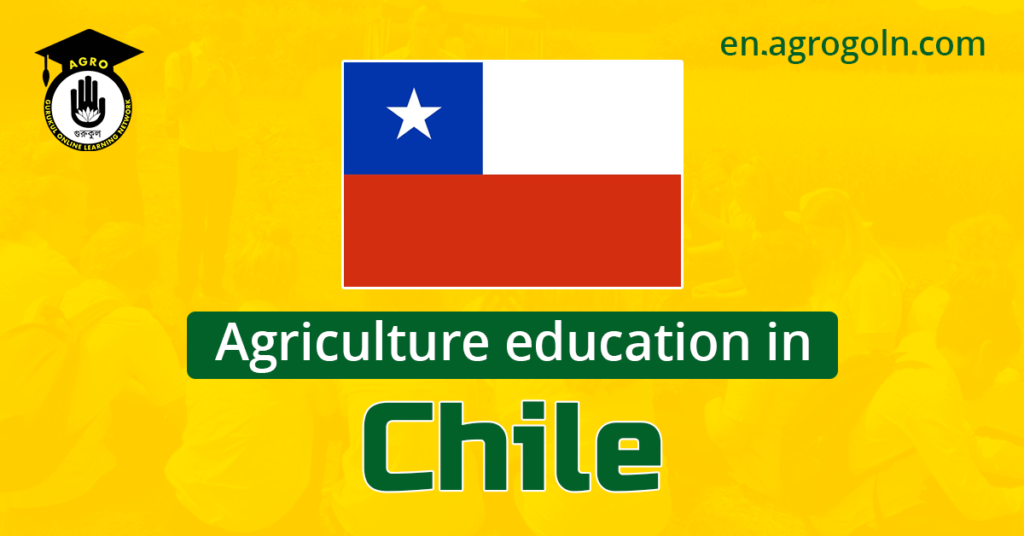Agricultural education forms a key foundation in the development of any nation’s agricultural sector, providing both technical expertise and knowledge that shape and direct its growth. Chile, located along the southwestern coastline of South America, possesses an impressive agricultural sector bolstered by a range of educational institutions and programs that promote agricultural excellence. This article explores the landscape of agricultural education in Chile, its role in the country’s agricultural success, and the potential avenues for its future development.
The Landscape of Agriculture Education in Chile
Chile’s agricultural education reflects its robust agricultural sector, which ranges from fruits and vegetables to livestock and fisheries. As a prominent player in global markets for wine, salmon, and berries, Chile’s commitment to education in this sector has been vital. The country boasts numerous universities, technical institutes, and vocational schools that offer various programs in agriculture and related fields.
Institutions such as the University of Chile, Pontifical Catholic University of Chile, and Universidad Austral de Chile offer courses spanning agricultural sciences, forestry, food science, and veterinary medicine. These universities provide a solid theoretical base, accompanied by hands-on learning through internships and practical sessions.
In addition, vocational and technical education plays a significant role in Chile’s agricultural education landscape. Schools like Duoc UC, a professional institute, provide specialized courses focusing on agricultural business and production. These programs help in producing a workforce proficient in the practicalities of farming, thereby fueling the agricultural industry’s technical requirements.
The Role of Agricultural Education in Chile’s Success
Chile’s agricultural education has played an instrumental role in the country’s agricultural successes. The provision of well-rounded agricultural education has ensured that there is a constant supply of competent professionals entering the sector. Graduates from these programs are adept in both theory and practice, capable of navigating the challenges of the agricultural landscape, and driving innovation within the industry.
The education system has also facilitated the growth of research and development within the agricultural sector. Universities and research institutions have made significant contributions to advancements in crop production, livestock management, fisheries, and viticulture. Research projects, often conducted in collaboration with international institutions, have led to breakthroughs in pest management, irrigation techniques, and crop yields. This focus on research and innovation has ensured Chile’s agricultural sector remains competitive on the international stage.
Moreover, agricultural education in Chile has had a ripple effect on the wider society. By instilling a deep understanding of sustainable farming practices and environmental stewardship, these programs foster a culture of respect for the land and natural resources. The programs’ emphasis on environmental sustainability and conservation makes a significant contribution to the country’s effort to combat climate change and preserve biodiversity.
Challenges and Future Development
Despite the strengths of Chile’s agricultural education system, challenges persist. There is a growing need for a more interdisciplinary approach, integrating agricultural studies with other disciplines like technology, economics, and social sciences. Such an approach is necessary to effectively address complex global challenges, such as climate change, food security, and market fluctuations.
The rapid development of technologies like precision agriculture, robotics, and artificial intelligence presents both an opportunity and a challenge for agricultural education in Chile. On one hand, these technologies could revolutionize the sector, increasing efficiency and sustainability. On the other hand, they necessitate a shift in the educational curriculum to incorporate digital literacy and technical skills.
Another area of concern is accessibility. While higher education opportunities in agriculture are abundant in urban centers, they remain limited in rural areas where the majority of farming communities reside. Bridging this gap could lead to more inclusive development, giving rural communities better access to knowledge and skills, thus improving agricultural productivity and sustainability.
To address these challenges, Chile’s agricultural education sector could adopt several strategies. A key focus should be developing more integrated curricula that blend traditional agricultural sciences with emerging technologies, market principles, and environmental studies. This would equip graduates with a broader range of skills and perspectives, enabling them to adapt to changing global landscapes.
Expanding vocational and distance learning opportunities could make agricultural education more accessible to rural communities. Moreover, collaborations between educational institutions and local communities could provide practical, context-specific training that directly benefits the learners.
In addition, fostering a culture of continuous learning and professional development within the agricultural sector is crucial. This can be achieved through short courses, workshops, and online resources that allow professionals to keep pace with technological advances and evolving industry trends.
Conclusion
Agricultural education in Chile has played a pivotal role in shaping the country’s thriving agricultural sector. By producing a skilled and knowledgeable workforce, fostering a culture of research and innovation, and promoting environmental sustainability, the sector is an indispensable part of Chile’s agricultural success.
However, to maintain its effectiveness in the face of emerging global challenges, the agricultural education sector must continue to evolve. This will involve adopting more integrated curricula, expanding access to rural communities, and promoting continuous professional development.
With these strategies in place, Chile’s agricultural education sector can continue to power the country’s agricultural industry and contribute significantly to its social, economic, and environmental well-being.

